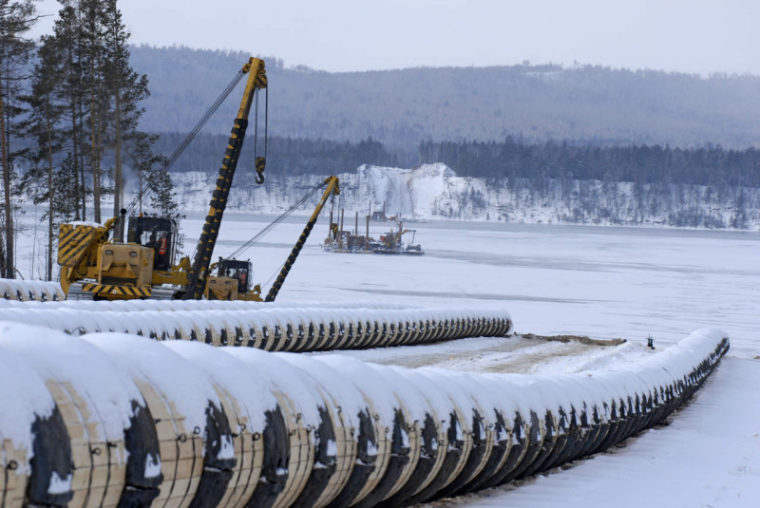What goes on in Poland on the 27th of February.
Russia stopped oil supplies to Poland
PKN Orlen CEO Daniel Obajtek revealed on Twitter that Russia has stopped oil supplies to Poland. He assured that this direction was the source of 10 percent of imports and was replaceable without a hindrance.
Poland imported 10 percent of its oil demand from Russia under the Orlen-Tatneft contract, which runs until 2024. The president of Orlen did not explain why the supplies had been stopped, but BiznesAlert.pl had previously informed that Russians may stop supplying oil to countries that have imposed sanctions on Russia in the oil sector, with the G7’s maximum price on top of the list. A special government decree on this issue will enter into force in March.
„Russia has stopped oil supplies to Poland, for which we are fully prepared. Only 10% of oil was coming from Russia and it will be replaced with oil from other directions. This is the result of the diversification that we have carried out in recent years,” PKN Orlen CEO Daniel Obajtek said on Twitter. According to BiznesAlert.pl so far, there was no information from Russia about the reason for the suspension of supplies.
„PKN Orlen does not receive oil supplies from Russia. Deliveries via the Druzhba pipeline to Poland were stopped by the Russian side. We emphasize that the company is fully prepared for such a situation and deliveries to its refineries can be made entirely by sea. Therefore, the suspension of deliveries will not affect the supply of Polish customers with the company’s products, including gasoline and diesel,” Orlen said in a statement. „Since the beginning of February this year, after the expiration of the contract with Rosneft, Russian oil supplies covered only approx. 10% of the company’s demand for this raw material. These were only pipeline deliveries that were not subject to international sanctions,” the statement explained.
„PKN Orlen has refused to import oil by sea and finished fuels from Russia since the beginning of the war in Ukraine, that is, much earlier than the EU embargoes on this type of supply were introduced,” the CEO said. „In 2015, Russian oil accounted for almost 100 percent of the crude processed at the group’s plants. A significant decrease in the use of this raw material in Polish refineries is the result of intensive efforts to diversify supply. Currently, PKN Orlen’s import portfolio is based on oil supplies from the North Sea, West Africa, the Mediterranean, as well as the Persian Gulf and Mexico. An important partner of the concern is Saudi Aramco, with which PKN ORLEN concluded a strategic contract for the supply of oil in 2022,” the statement said.
Orlen presents Q4 financial results
At a press conference Orlen presented its financial results for the 4th quarter of 2022
„We are one of the largest multi-energy concerns in Central and Eastern Europe, we are one of the 150 largest companies in the world. The most important event was the completion of the acquisition of Lotos and PGNiG, ensuring the supply of oil at a time when we are phasing out oil from the East. We plan to increase oil and gas production,” said Jan Szewczak, Orlen board member for financial matters.
„We have fulfilled all our obligations regarding the merger. In December 2022, we took over the fuel stations in Hungary, they are being rebranded and adapted to our requirements. Ultimately, we will take over 143 stations in Hungary,” said Jan Szewczak.
„Orlen has its own fleet of gas carriers, one of them is already carrying an LNG cargo to Poland. We are thinking about investing in petrochemicals together with Saudi Aramco. We will calculate the carbon footprint of our value chain according to the new requirements. We are planning investments to reduce water intake from the Vistula river by 25 percent. We plan to build a biogas plant that will help reduce CO2 emissions from transport,” said Janusz Szewczak.
„We are working with GE Hitachi Nuclear Energy on the BWRX-300 SMR reactors that are entering commercial operation in Canada. With Synthos, we created Orlen Synthos Green Energy, which applied for permission to work on these reactors. The technical documentation is based on state-of-the-art solutions, it is a safe technology. This partner has not been chosen at random. In addition to SMRs, we are working on hydrogen fuels, synthetic fuels, we are aware of the need for transformation. Orlen is an essential part of it,” Jan Szewczak said.









